by Ken Sehested
“I don’t know how to act my age. I’ve never been this age before.”
— cartoon character Dennis the Menace, responding to a scolding from his Mom
I am more or less at the age of old-fartness. My Medicare coverage is in place—started Social Security early to fund prayer&politiks. Not so long ago I organized a “Pilates for Old Farts” exercise group.
As if I needed more evidence of the effect of aging, this spring—for the first time in at least 20 years—my reliable Briggs &  Stratton lawnmower engine failed to fire up with the first pull of the season. (It took 6, maybe because the rubber engine choke button was stiff from winter’s hibernation.)
Stratton lawnmower engine failed to fire up with the first pull of the season. (It took 6, maybe because the rubber engine choke button was stiff from winter’s hibernation.)
A while ago, in a birthday greeting to a friend turning 50, I noted that’s about the age when things start hurting where you didn’t know you have things. Sixty-five is that and more.
I can now take my place in the ranks of the cantankerous, pshawing technological advances and cultural cutting edges. So, yes, social media is largely unfriendly to my slackened eyes. My three-year-old grandson knows how to take a picture with a smart phone, something I’ve done only at the request of (and coaching by) others.
It wasn’t so long past that I was still swinging a three-pound sledge on a industrial grade chisel shaping natural stone for retaining walls, chimneys and porch columns. That career ceased (not entirely by choice) at the same time I took up my online publication. A friend commented that I was exchanging one of history’s oldest technologies for one of its newest.
I’ve never been known as a technological wiz.
§ § §
“Thus saith the LORD, Stand ye in the ways, and see, and ask for the old paths,
where is the good way, and walk therein, and ye shall find rest for your souls.”
—Jeremiah 6:16, KJV
§ § §
I’m pretty sure I was among the last manual typewriter users. Years of fingertip pushups as a schoolboy athlete meant even the stiffest keys were no problem. And I’m now among the 7% of the US population (25% globally) without a cell phone—or, I 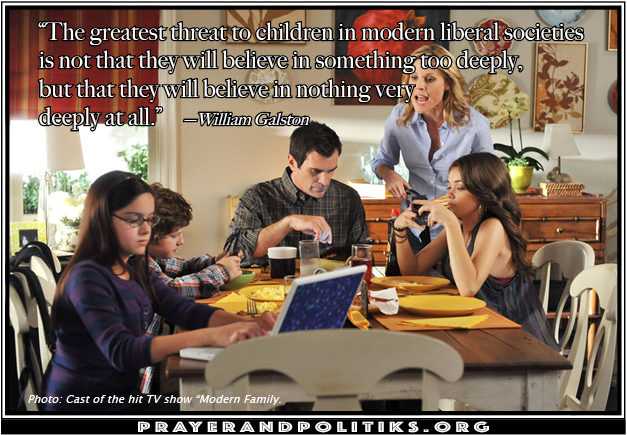 was, until my sister’s illness, and now my mother’s health, prompted me to get one of those $100-a-year plans, definitely unsmart, for quick access in case of emergency when traveling. My disregard is not so much the cost as it is the feeding and care of the beast. There are a few times I wished I had the thing, but only a few. I’m more of a wash-and-wear guy.
was, until my sister’s illness, and now my mother’s health, prompted me to get one of those $100-a-year plans, definitely unsmart, for quick access in case of emergency when traveling. My disregard is not so much the cost as it is the feeding and care of the beast. There are a few times I wished I had the thing, but only a few. I’m more of a wash-and-wear guy.
It’s still a mystery, with one key stroke on my journal layout page—sending an electronic signal somewhere in the known world—I can watch a corrected spelling appear almost instantaneously before my eyes.
I still have a vivid memory, as a high schooler, of my inaugural plane ride, and seeing for the first time the tops of clouds.
Change happens. Sometimes majestically so.
§ § §
On my last trip to Cuba I stayed for a few days at a modest hotel on the edge of Ciego de Avila. At dusk one evening I stood on the second-floor balcony watching a man in the distance “mowing” grass with a machete. The efficient rhythm of his movements was fascinating. Every few minutes he stopped and stuffed the cut grass in gunny sacks—likely feed for his horses, my native traveling companion informed. Then at one pause, using his t-shirt to wipe the perspiration from his face, he sat down and pulled something from his pocket. It took me a few seconds to interpret what I was seeing. It was a cell phone.
Cell phones in Cuba? Friends there tell me they are now coming to terms with children more interested in gathering around an electronic screen of some sort (few as they still are) than playing outside.
Change happens. Sometimes frightfully so.
§ § §
It was the ease of communicating with friends in Cuba, and elsewhere in the distance, that caused me years ago to throw off my laggardly ways regarding email. Back then (and not so different now), a letter took a month or more to reach Cuba, and even then had less than half a chance of actually reaching its addressee.
I’m not a Luddite when it comes to technology. To earn a living after seminary I learned to use a typesetter, a behemoth piece of electronic equipment, and started a business servicing print needs. That skill provided an enormously helpful subsidy of  my organizing work, along with learning layout and design. I’m of the generation who made the switch from hand-laid paste-up—Oh! the days of waxers, Exacto knives, pica sticks and a light table—to computerized design. Though I nearly bit a hole in my cheek learning it, I surely don’t miss the labor-intensive old ways.
my organizing work, along with learning layout and design. I’m of the generation who made the switch from hand-laid paste-up—Oh! the days of waxers, Exacto knives, pica sticks and a light table—to computerized design. Though I nearly bit a hole in my cheek learning it, I surely don’t miss the labor-intensive old ways.
§ § §
I was initially surprised at the news, but it makes sense that summer camp leaders are in the vanguard of helping young people disconnect from social media for that short period. Researchers refer to this as "the fear of missing out."
Several years ago my congregation approved a recommendation banning all Wi-Fi devices from our Sunday gathering. Most immediately it was a response to one of our members who lives with an acute sensitivity to the electromagnetic radiation such devices emit (even when they’re “off”). More than that, the decision represents an awareness that social media has an inherent tendency to dominate our lives. Disconnecting for a brief time each week is a tangible discipline to remind ourselves of the need to “be still.”
§ § §
“I am about to do a new thing; now it springs forth, do you not perceive it?
I will make a way in the wilderness and rivers in the desert.”
—Isaiah 43:19
§ § §
When I fled the Southland for New York City midway through college, determined to acquire a cosmopolitan demeanor, I remember being stunned walking by the famous Bitter End nightclub in Greenwich Village. Its marquee heralded a concert by country music legend Hank Williams Jr. At about the same time, pointy-toed cowboy boots were becoming the Next Big Thing in hipster fashion.
I thought these were among the things I was leaving behind.
§ § §
The difficult questions we face regarding technological advance in general, and social media in particular, are legion—few are easily resolvable. But we need to ask, Is the fear of missing out actually causing us to miss out?
The 19th century British Luddites were not so much against machines as they were against displacement of human welfare  by insatiable profit motive. The immense social anger on exhibit in our current electoral season is traceable, in significant measure, to the same. No less an authority than Forbes magazine reports that among the 55 wealthiest countries, the US has the greatest level of income inequality, eroding all but the appearance of democracy. Former President Jimmy Carter, among the softest-spoken humanitarians of our age, recently claimed that the US is an oligarchy with unlimited political bribery.” A recent Oxfam report notes that the wealth of the world’s 62 richest individuals is equal to that of half the global population.
by insatiable profit motive. The immense social anger on exhibit in our current electoral season is traceable, in significant measure, to the same. No less an authority than Forbes magazine reports that among the 55 wealthiest countries, the US has the greatest level of income inequality, eroding all but the appearance of democracy. Former President Jimmy Carter, among the softest-spoken humanitarians of our age, recently claimed that the US is an oligarchy with unlimited political bribery.” A recent Oxfam report notes that the wealth of the world’s 62 richest individuals is equal to that of half the global population.
§ § §
We have known for a while that social media’s “virtual” reality threatens actual reality: eating away at the social ligaments of human bonding; offering more information and less perspective; providing anonymous platforms for ugly, desecrating speech; fast-tracking rumor, gossip and fear-mongering.
Nowadays you even have the option of online communion, replacing that boundary-breeching shared meal—and its design of a new heaven and new earth—with private cumulation and anomie. Disciples become consumers; hoarding is established as the orientation of hope.
The urging of return to “old time religion” in the Jeremiah passage quoted above is not to anti-modern old-fartedness. It has nothing to do with old dogs, anymore than Isaiah’s reported vow is about new tricks. God’s social media is an exhortation made in the context of human extortion: “From the least to the greatest of them, everyone is greedy for unjust gain . . . they did not know how to blush” (Jeremiah 6:13, 15—the lostness for which the "old way" is a remedy). This is the only signal to which we must stay attuned—if we are to be atoned.
How we get there—to the way in the wilderness, to water’s sustenance in the desert—is left up to communal discernment,  to paying still-time attention, to spotting the new things the Spirit is doing and mortgaging security to get there.
to paying still-time attention, to spotting the new things the Spirit is doing and mortgaging security to get there.
# # #


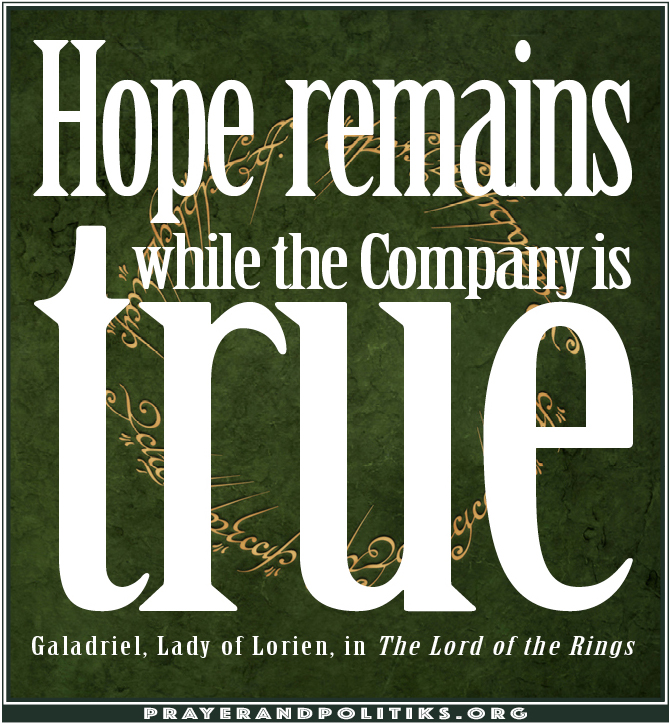
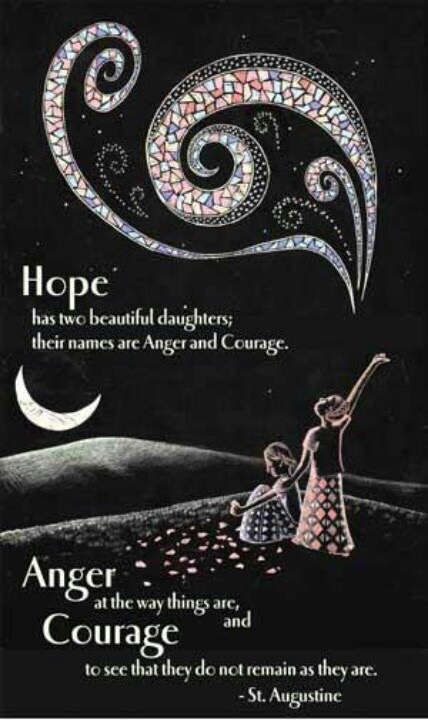 § “Faith, hope, and love abide, wrote the Apostle, adding that ‘the greatest of these is love’ (1 Corinthians 13:13). Maybe so. But hope is the hardest.” —Nancy Hastings Sehested
§ “Faith, hope, and love abide, wrote the Apostle, adding that ‘the greatest of these is love’ (1 Corinthians 13:13). Maybe so. But hope is the hardest.” —Nancy Hastings Sehested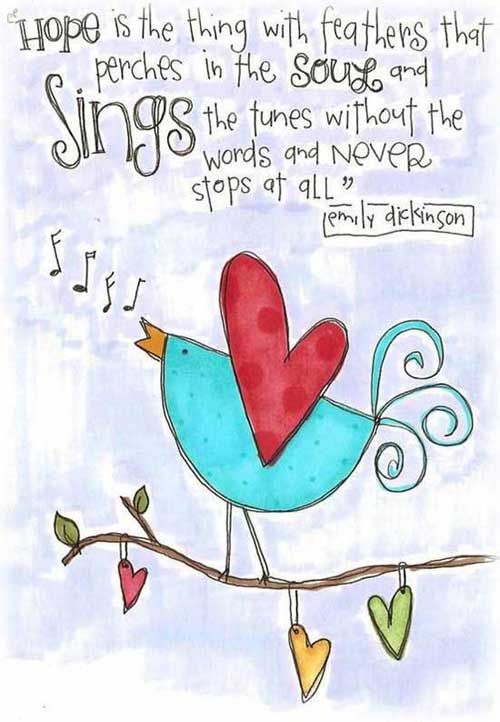 1965 Selma to Montgomery march
1965 Selma to Montgomery march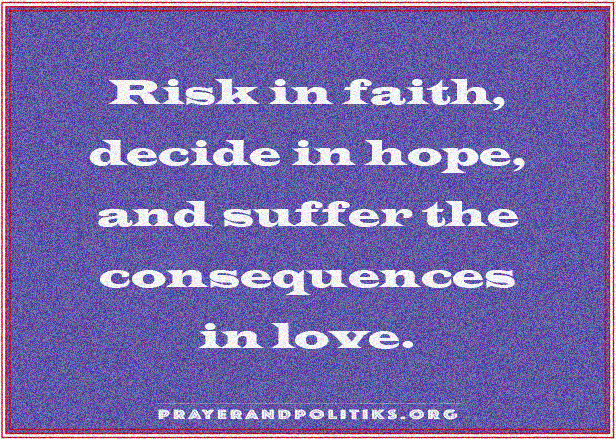 brought us.” —James Weldon Johnson, lyrics in “Lift Every Voice and Sing”
brought us.” —James Weldon Johnson, lyrics in “Lift Every Voice and Sing”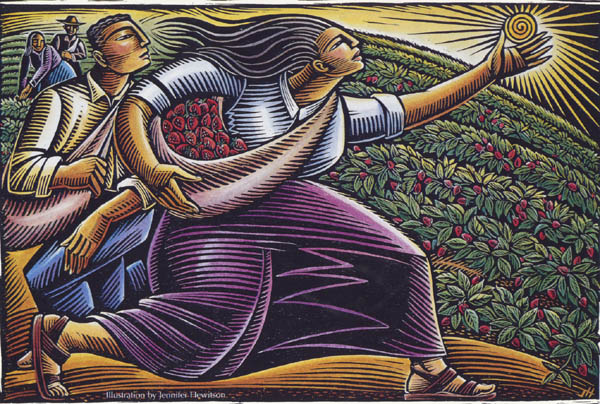 assail us.” —Cynthia Bourgeault
assail us.” —Cynthia Bourgeault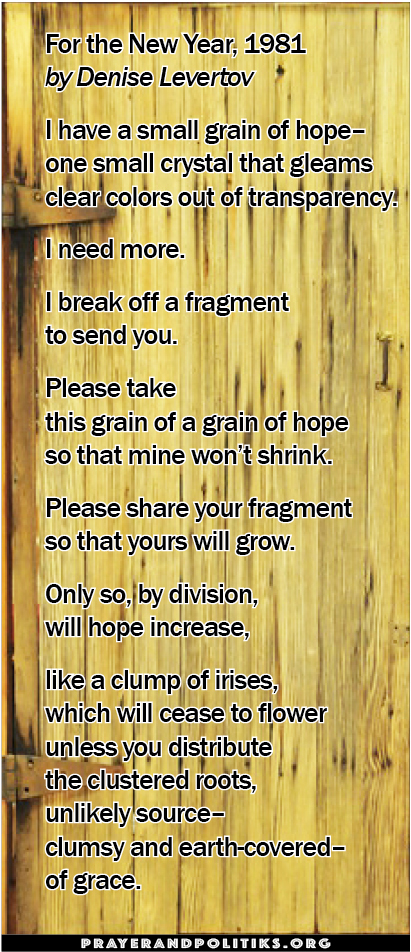 outcome forged in justice / and tempered in mercy. —Ken Sehested, “
outcome forged in justice / and tempered in mercy. —Ken Sehested, “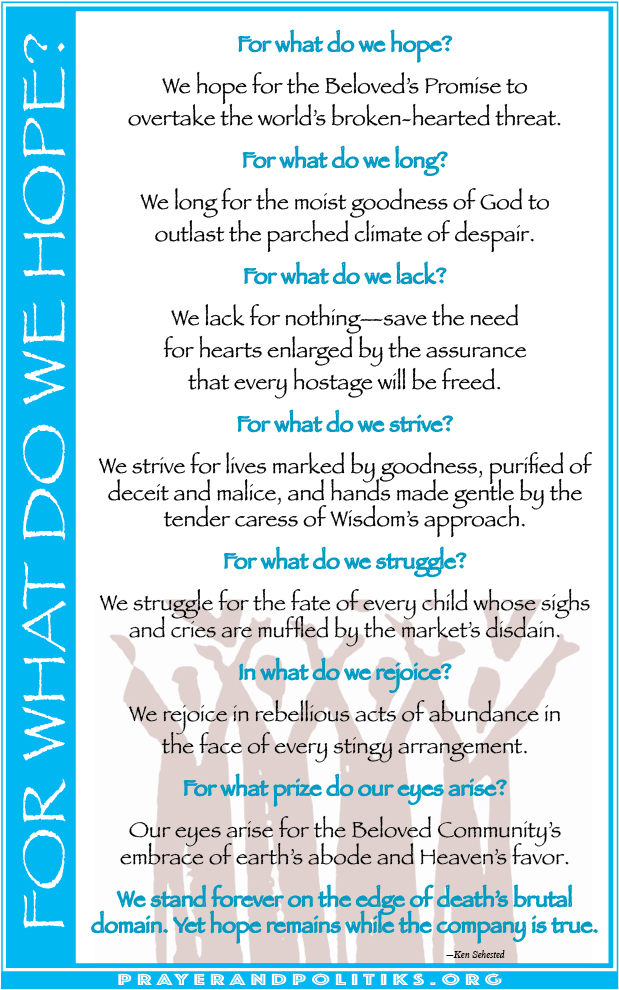 the Lord, my help and my God.” —Psalms 42:11
the Lord, my help and my God.” —Psalms 42:11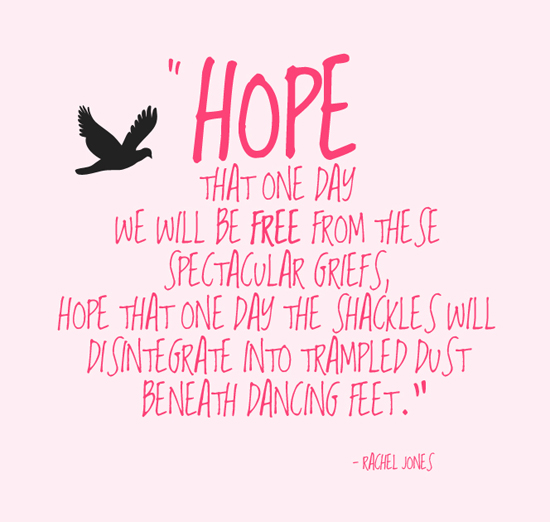 does not disappoint us, because God’s love has been poured into our hearts through the Holy Spirit that has been given to us.” —Romans 5:2
does not disappoint us, because God’s love has been poured into our hearts through the Holy Spirit that has been given to us.” —Romans 5:2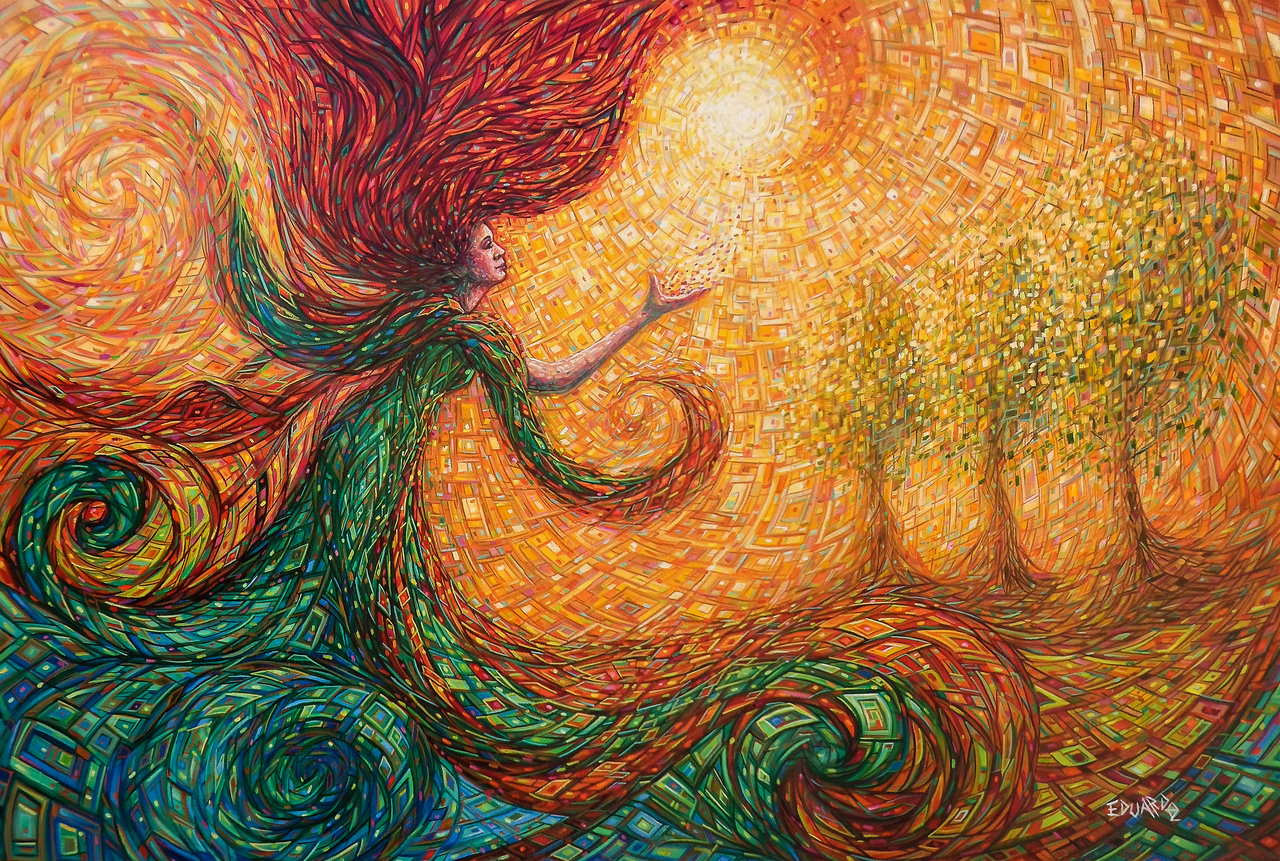 § “Hope is the worst of evils, for it prolongs the torments of man.” —Friedrich Nietzsche
§ “Hope is the worst of evils, for it prolongs the torments of man.” —Friedrich Nietzsche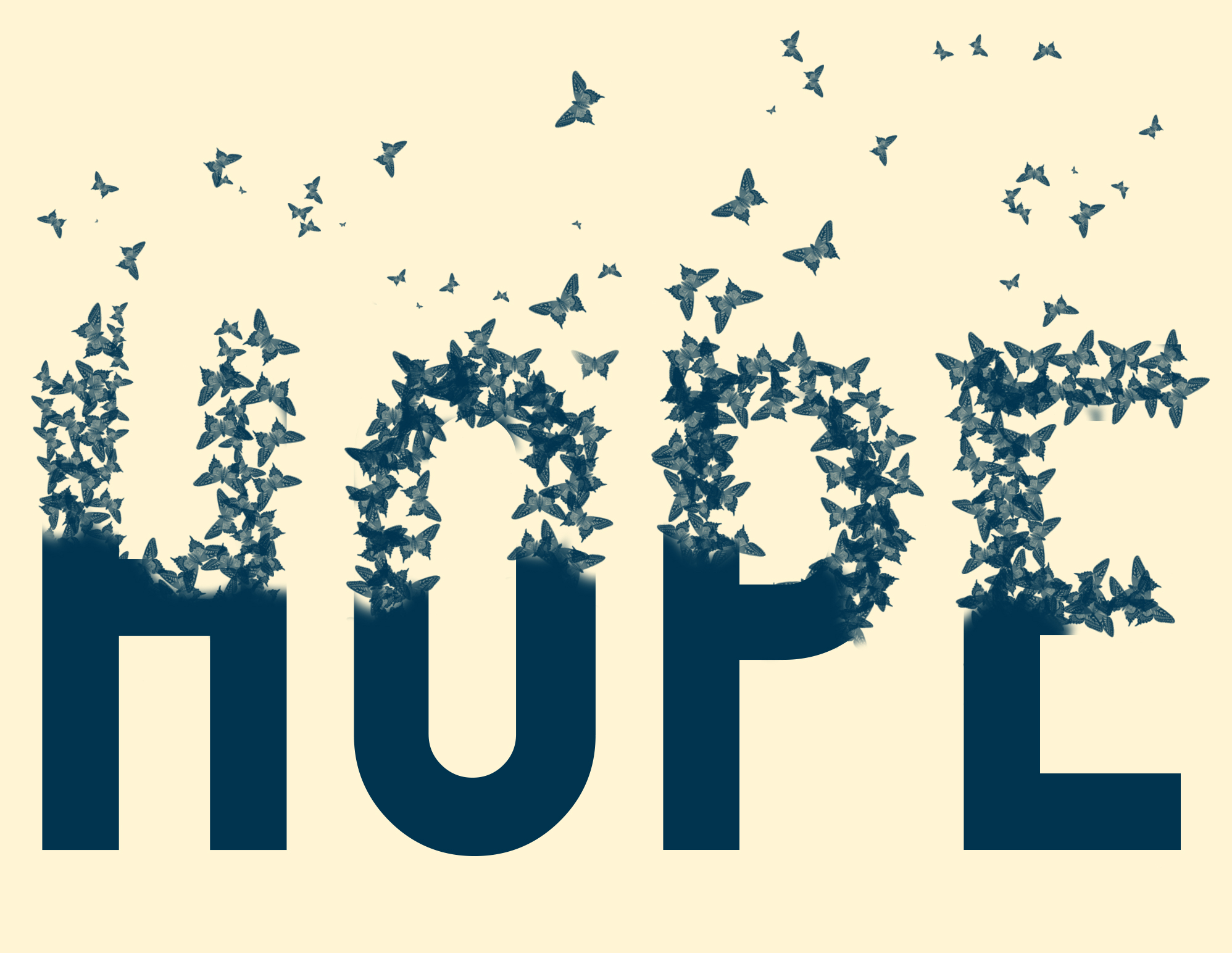 fields yield no food; though the flock is cut off from the fold and there is no herd in the stalls, yet I will rejoice in the LORD; I will exult in the God of my salvation. “ —Habakkuk 3:17-18
fields yield no food; though the flock is cut off from the fold and there is no herd in the stalls, yet I will rejoice in the LORD; I will exult in the God of my salvation. “ —Habakkuk 3:17-18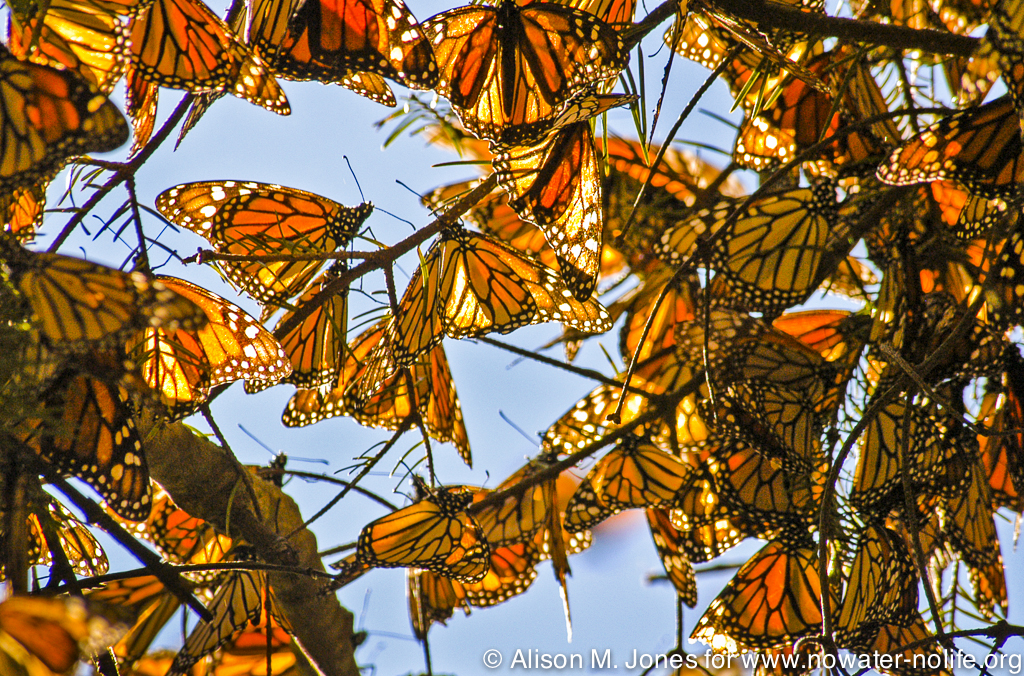
 Sehested’s “
Sehested’s “ ¶ Hymn of praise. “
¶ Hymn of praise. “ Brightman, Paul Miles-Kingston. The music accompanies actual film footage (3:34) from World War I’s “Battle of The Somme,” when French and British allies took the offensive against German troops in France, 1 July-18 November 1916. The British suffered 57,000 casualties on the first day of the offensive. All total, more than 1 million men were wounded or killed, making it one of the bloodiest battles in history.
Brightman, Paul Miles-Kingston. The music accompanies actual film footage (3:34) from World War I’s “Battle of The Somme,” when French and British allies took the offensive against German troops in France, 1 July-18 November 1916. The British suffered 57,000 casualties on the first day of the offensive. All total, more than 1 million men were wounded or killed, making it one of the bloodiest battles in history. [First Lady] Laura Bush ‘opened’ in 2004 but that still has never seen a patient, and more, totaling $5 billion.”
[First Lady] Laura Bush ‘opened’ in 2004 but that still has never seen a patient, and more, totaling $5 billion.”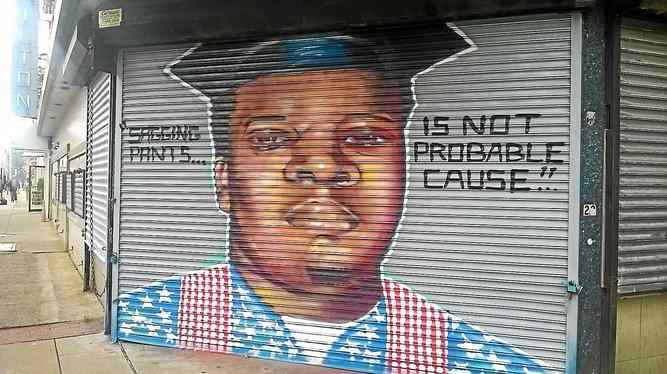 longest conflict in American history, one that continues with no end in sight.” —Andrew Bacevich, “
longest conflict in American history, one that continues with no end in sight.” —Andrew Bacevich, “ Afghanistan (220,000) and Pakistan 80,000) since the 2003 US invasion of Iraq. In addition, they estimate another 1.3 million violent deaths in newer conflict zones, including Syria and Yemen. —see
Afghanistan (220,000) and Pakistan 80,000) since the 2003 US invasion of Iraq. In addition, they estimate another 1.3 million violent deaths in newer conflict zones, including Syria and Yemen. —see  ¶ Some remembrances, however painful, provide essential guidance for truth telling in the future. The second of two atomic bombs dropped on Japan exploded directly over the Urakama Cathedral in Nagasaki, a Jesuit-led congregation at the heart of Japan’s Roman Catholic population, on 9 August 1945. (Thanks Shelley.)
¶ Some remembrances, however painful, provide essential guidance for truth telling in the future. The second of two atomic bombs dropped on Japan exploded directly over the Urakama Cathedral in Nagasaki, a Jesuit-led congregation at the heart of Japan’s Roman Catholic population, on 9 August 1945. (Thanks Shelley.)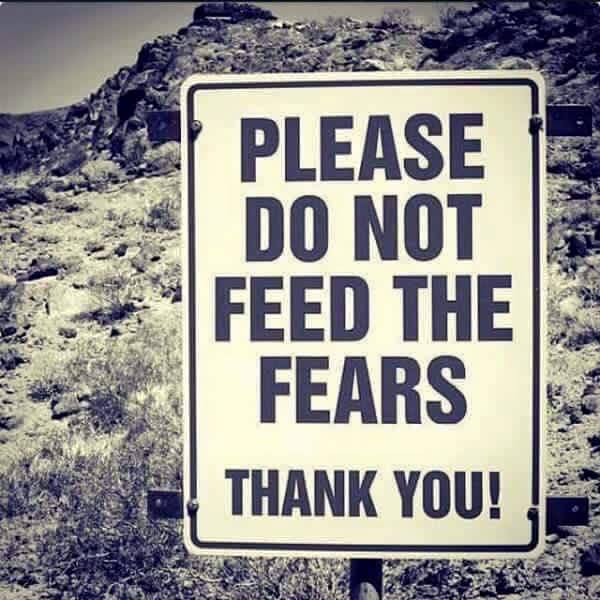 rather discordant—wait for it.)
rather discordant—wait for it.) # # #
# # #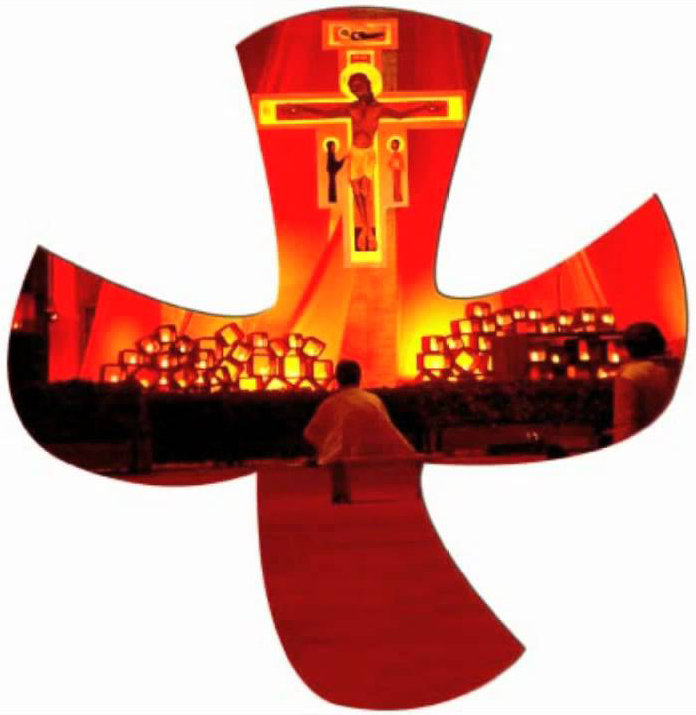 Fill Our Hearts" at each of our stops.)
Fill Our Hearts" at each of our stops.)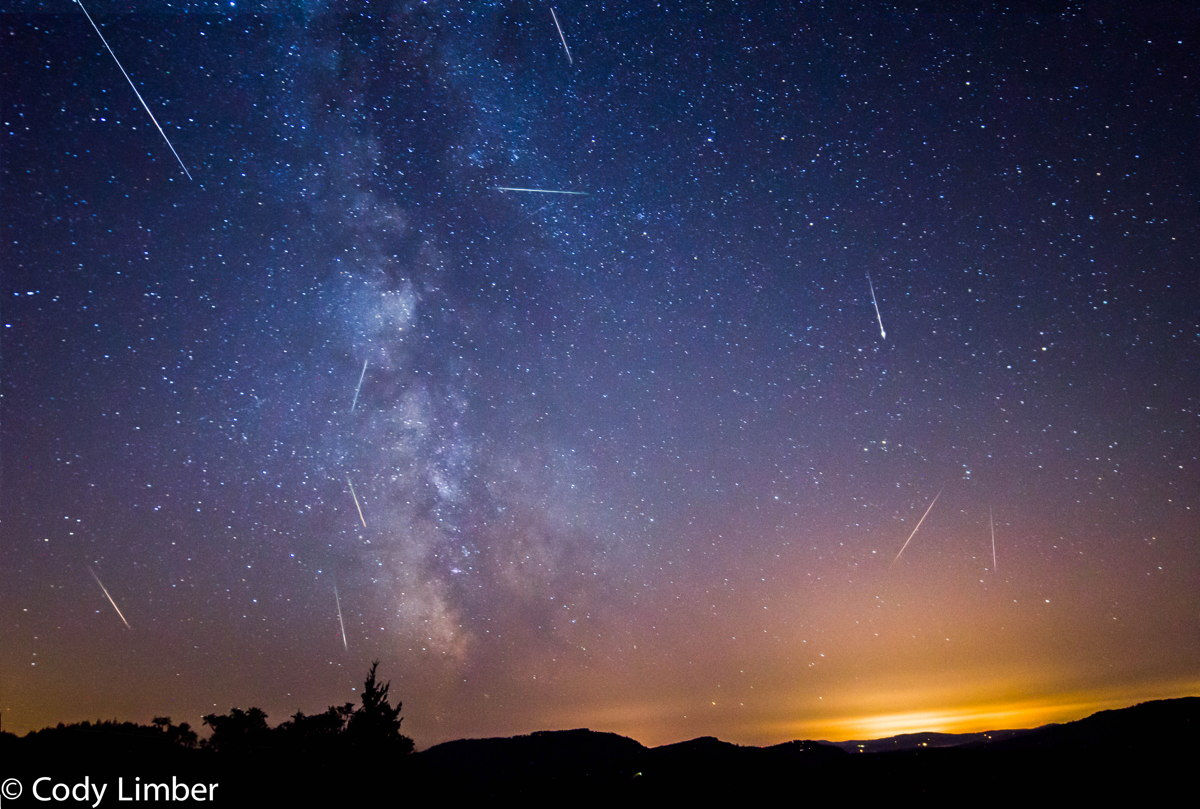
 ¶ “In a gesture of solidarity following the gruesome killing of a French priest, Muslims on Sunday attended Catholic Mass in churches and cathedrals across France and Italy.” —
¶ “In a gesture of solidarity following the gruesome killing of a French priest, Muslims on Sunday attended Catholic Mass in churches and cathedrals across France and Italy.” — elections since 2000. That’s out of more than 1 billion votes cast.” —Asheville Citizen-Times editorial, 2 August 2016
elections since 2000. That’s out of more than 1 billion votes cast.” —Asheville Citizen-Times editorial, 2 August 2016 life and ascetic practice, born in the eastern edge of the Arabian Peninsula (in what is now Bahrain, where the US Navy’s Fifth Fleet is stationed). Once appointed bishop of Nineveh, he lasted only five months before returning to a hermit life.
life and ascetic practice, born in the eastern edge of the Arabian Peninsula (in what is now Bahrain, where the US Navy’s Fifth Fleet is stationed). Once appointed bishop of Nineveh, he lasted only five months before returning to a hermit life.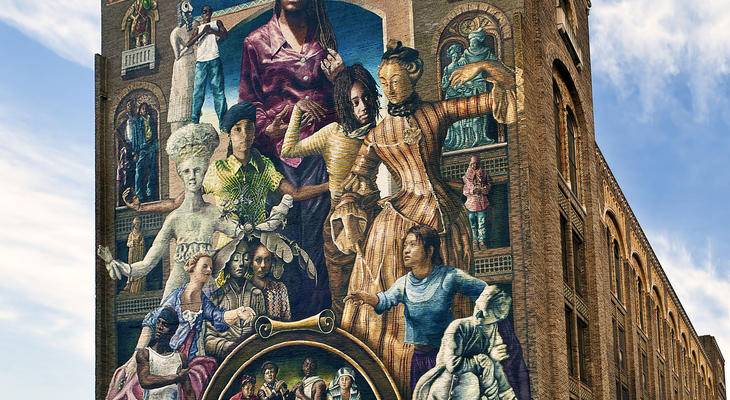 Left. Meg Saligman's “Common Threads,” one of many amazing murals in Philadelphia, reflects the links between the past and present and across cultures.
Left. Meg Saligman's “Common Threads,” one of many amazing murals in Philadelphia, reflects the links between the past and present and across cultures. and white, civilian vigilantes massacred hundreds—if not thousands—of Mexican Americans or Tejanos between 1915 and 1919 in what historians have called some of the worst state-sanctioned racial violence in the US.” —
and white, civilian vigilantes massacred hundreds—if not thousands—of Mexican Americans or Tejanos between 1915 and 1919 in what historians have called some of the worst state-sanctioned racial violence in the US.” — e and happiness that I have is to, the minute something like that comes up, and it does, forgiveness is not a light switch, it's a dimmer, and somebody keeps sneaking over and turning it up—but you have to be mindful, you have to not go to the fear, not go to the anger, not go to that side but go to the love of yourself, of your family.” —read more of Abigail Hastings’ sermon, “
e and happiness that I have is to, the minute something like that comes up, and it does, forgiveness is not a light switch, it's a dimmer, and somebody keeps sneaking over and turning it up—but you have to be mindful, you have to not go to the fear, not go to the anger, not go to that side but go to the love of yourself, of your family.” —read more of Abigail Hastings’ sermon, “ in Turkey with 18 other refugees. When the engine stopped working and the dinghy began to take on water, Mardini, her sister and another refugee got into the water and pushed the boat across the Aegean Sea for more than four hours, until they reached Lesbos. In 2012 she represented Syria in the World Swimming Championships. The 18-year-old now lives and trains in Berlin.
in Turkey with 18 other refugees. When the engine stopped working and the dinghy began to take on water, Mardini, her sister and another refugee got into the water and pushed the boat across the Aegean Sea for more than four hours, until they reached Lesbos. In 2012 she represented Syria in the World Swimming Championships. The 18-year-old now lives and trains in Berlin. by Luke 12:49-53 & Jeremiah 6:13-15
by Luke 12:49-53 & Jeremiah 6:13-15  A note from Gerald,
A note from Gerald,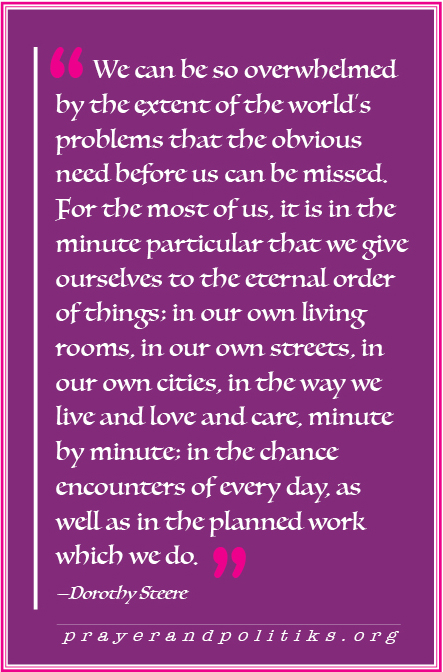 systems of institutionalized colonialism that are keeping all of us down and oppressed. And as those of you know me, my side will be colorful and explicit and bold.
systems of institutionalized colonialism that are keeping all of us down and oppressed. And as those of you know me, my side will be colorful and explicit and bold.